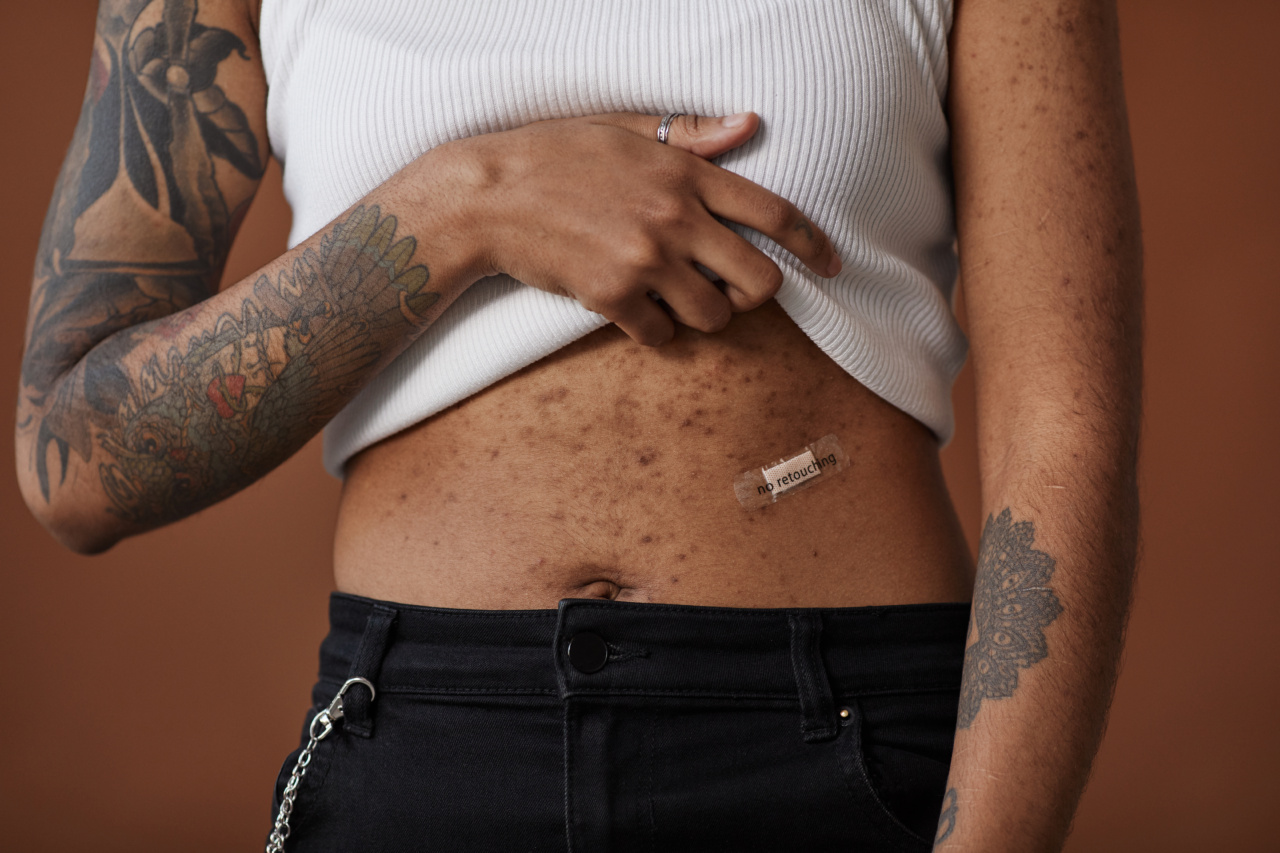Having acne on your face can be frustrating, but dealing with body acne is a whole different ballgame. Body acne can make you self-conscious and limit the types of clothes you feel comfortable wearing.
However, there are ways to combat body acne and regain your confidence. In this article, we will explore the causes of body acne and provide you with effective strategies to keep it at bay.
What Causes Body Acne?
Body acne, also known as bacne, can be caused by various factors. Here are some common causes of body acne:.
1. Hormonal Changes
Hormonal changes can lead to increased sebum production, which can clog the pores and result in acne. During puberty, hormonal fluctuations can trigger the onset of body acne.
2. Sweating and Friction
Excessive sweating, especially when combined with friction from tight clothing, can lead to clogged pores and acne breakouts.
If you frequently engage in intense physical activities, it’s important to clean your body thoroughly afterwards to prevent clogged pores.
3. Genetic Predisposition
Some people may have a genetic predisposition to developing body acne. If your parents or other family members have struggled with body acne, you might be more prone to experiencing it as well.
4. Poor Hygiene
Not maintaining proper hygiene can contribute to the development of body acne. When sweat, dirt, and oils accumulate on the skin, they can mix together and clog the pores, leading to breakouts.
5. Contact with Irritants
Coming into contact with irritating substances such as harsh chemicals, certain fabrics, or even certain types of laundry detergents can trigger body acne. Sensitivity to these substances varies from person to person.
Strategies to Combat Body Acne
Now that we understand the common causes of body acne, let’s explore some effective strategies to combat it:.
1. Cleanse Your Skin Regularly
One of the most important steps in preventing body acne is to cleanse your skin regularly. Use a gentle cleanser formulated for acne-prone skin and make sure to cleanse your body after sweaty activities or exposure to irritants.
2. Exfoliate Your Skin
Regular exfoliation can help remove dead skin cells, unclog pores, and prevent acne breakouts. However, be cautious not to scrub too harshly, as it can irritate the skin and worsen the acne.
3. Wear Loose-Fitting Clothing
Tight clothing can trap sweat and bacteria against your skin, promoting acne breakouts. Opt for loose-fitting, breathable clothing to allow your skin to breathe and reduce friction.
4. Avoid Irritating Substances
If you have identified specific substances that irritate your skin and trigger body acne, try to avoid them as much as possible. Choose hypoallergenic laundry detergents and fabrics that are gentle on the skin.
5. Use Non-Comedogenic Products
When it comes to skincare and body care products, opt for non-comedogenic options. These products are specifically designed not to clog pores, reducing the risk of acne breakouts.
6. Don’t Pick or Pop Your Pimples
Although it can be tempting, avoid picking or popping your pimples. This can lead to scarring, prolong the healing process, and even spread bacteria, causing more breakouts.
7. Maintain a Healthy Diet
What you eat can impact the health of your skin. Avoid excessive consumption of sugary and greasy foods, as they can contribute to inflammation and worsen acne.
Instead, incorporate fruits, vegetables, and foods rich in omega-3 fatty acids into your diet.
8. Stay Hydrated
Drinking an adequate amount of water daily can help flush out toxins and keep your skin hydrated. Proper hydration promotes healthy skin and may aid in preventing acne breakouts.
9. Seek Professional Help
If your body acne persists despite trying various strategies, it may be beneficial to seek professional help.
Dermatologists can provide you with personalized advice, prescribe topical or oral medications, and suggest treatments such as chemical peels or laser therapy.
10. Don’t Let Body Acne Define You
Lastly, remember that body acne does not define your worth or beauty. It is a common condition that many people experience, and there are ways to manage and reduce its impact on your life.
Focus on self-care, surround yourself with a supportive network, and embrace your uniqueness.




























